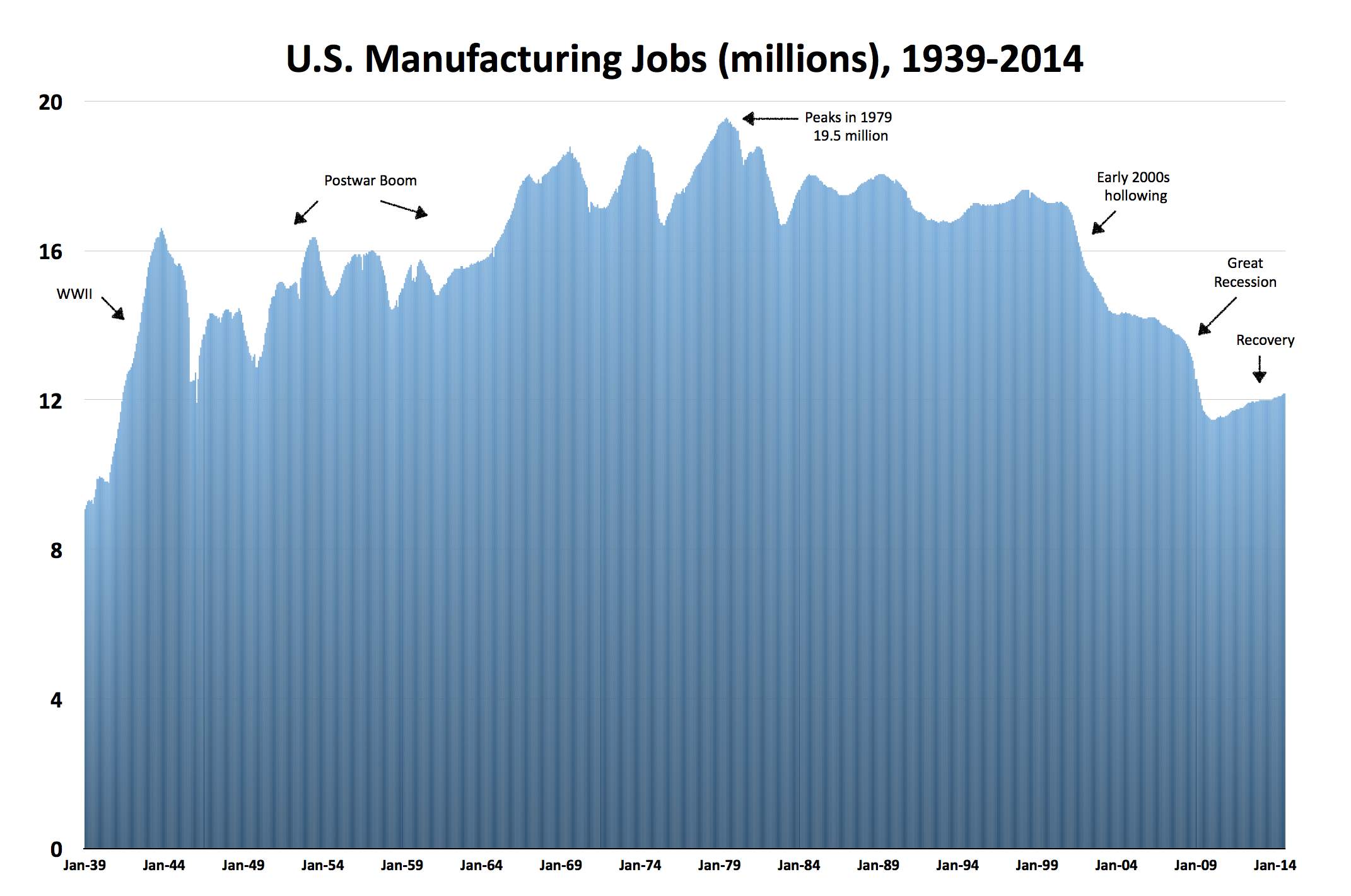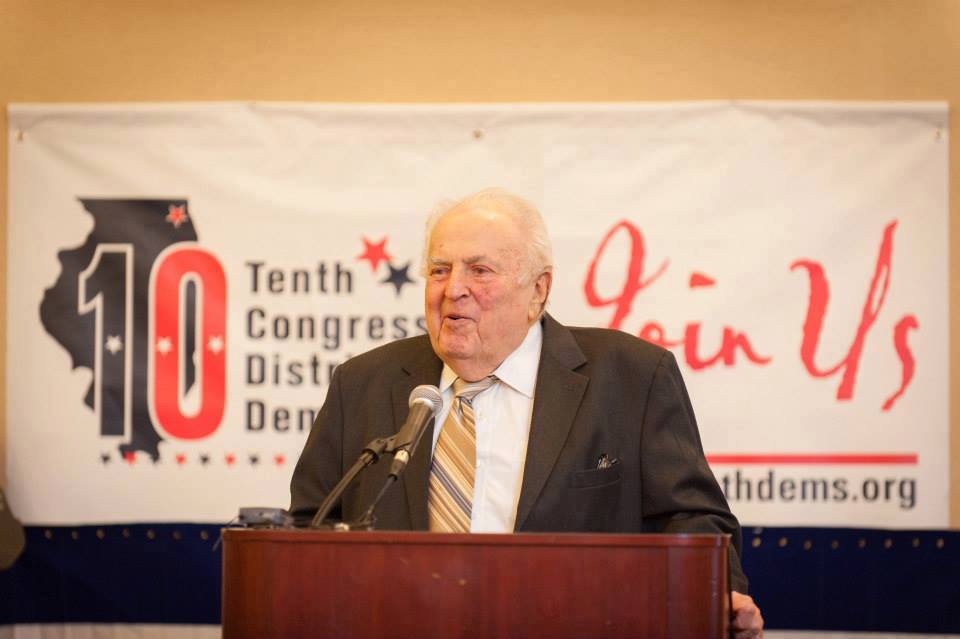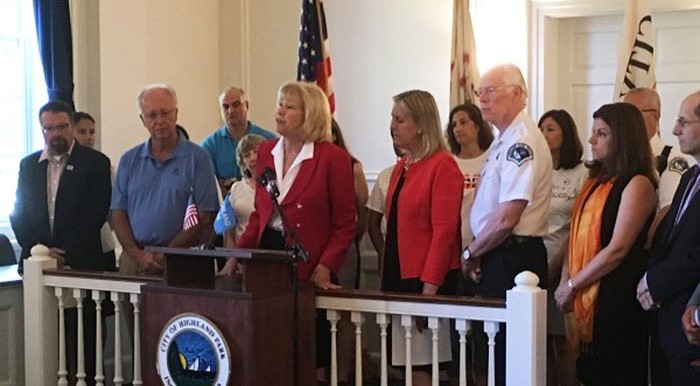By Murray Levin
Donald Trump has gained much of his support from people who feel that their financial condition has stagnated for the last several years. They know that their incomes and social situations have not improved and may have deteriorated. They have little hope for improvement. They blame both political parties and the Obama Administration. They blame NAFTA (the North American Free Trade Agreement), which makes them angry at Hillary Clinton because her husband signed NAFTA when he was President. In fact, NAFTA was negotiated mostly by the George H. W. Bush administration, but since it was signed by Bill Clinton shortly after he became President, Clinton tends to get the blame (or credit) for this trade agreement. 
Here’s another fact. Although some jobs probably have been lost because of NAFTA, the largest number of US manufacturing jobs lost over the last several decades were lost between 2000 and 2010— mostly during the George W. Bush administration. Since 2010, the US economy has actually gained manufacturing jobs.
These facts bear repeating. The majority of manufacturing jobs were lost to other countries during the George W. Bush Republican administration, and the Obama administration has increased manufacturing jobs in the U.S. Of the five million U.S. manufacturing jobs that went overseas during the first decade of this century, over three million were lost to China and several hundred thousand more to other Asian countries. This large number of jobs went to China and other Asian countries because U.S. businesses found it cheaper to manufacture there despite some terrible quality and safety issues. This occurred after China was allowed to enter the World Trade Organization in December, 2001, during the Bush 43 administration. The Bush administration put up few if any obstacles to this shift of jobs to China and other Asian countries.
NAFTA was not the cause of this job loss. Only 20 percent of the five million jobs lost from 2000 to 2010, about one million, went to Mexico and Canada, the two countries that were part of NAFTA. What happened in Asia from 2000 forward cannot be attributed to Bill Clinton’s having signed NAFTA, much less to his first lady, Hillary Clinton.
One answer to bringing back U.S. jobs is government-funded infrastructure improvement. However, the Republican leadership in the Senate and House has done everything it can to block President Obama’s efforts to create construction jobs through programs to improve our infrastructure.
Of course, we know why infrastructure improvement, a program that should be noncontroversial, has been blocked over the last seven and a half years. Senator Mitch McConnell, leader of the Senate Republicans, famously called a meeting immediately after President Obama’s first inauguration in 2009 and launched his plan to obstruct everything Obama wanted. The result? No infrastructure jobs, no new energy jobs, no government-supported jobs program.
Both Bernie Sanders and Hillary Clinton have championed infrastructure job creation as a way of providing better jobs for the lower and lower-middle economic classes.
The anger of those who are justifiably unhappy with their current economic lot should be directed in the appropriate direction—at the loose attitude toward job loss to China by the Bush 41 administration and at Republicans in Congress, who have blocked President Obama’s efforts to build a better economy.
Donald Trump’s economic plans, which have been blasted by economists of all political and social leanings, would only make things worse. Investment in new jobs would be difficult, if not impossible, if Trump’s plan to decrease tax rates for the wealthy and for corporations were implemented. In contrast, Clinton wants to make sure that the rich and the companies pay their fair share so that our country’s economy can move forward with investment in our infrastructure and education.
These are only some of the reasons why election of Democrats like Brad Schneider and Tammy Duckworth is essential to helping the next Democratic administration break the logjam in Washington and get our country moving forward again.


 On June 28, Democratic State Senator Julie Morrison (29th District) officially kicked off her reelection campaign at her campaign office on Lake Cook Road in Deerfield. Morrison was surrounded by friends, family, and more than 50 supporters as she announced the start of her campaign.
On June 28, Democratic State Senator Julie Morrison (29th District) officially kicked off her reelection campaign at her campaign office on Lake Cook Road in Deerfield. Morrison was surrounded by friends, family, and more than 50 supporters as she announced the start of her campaign.